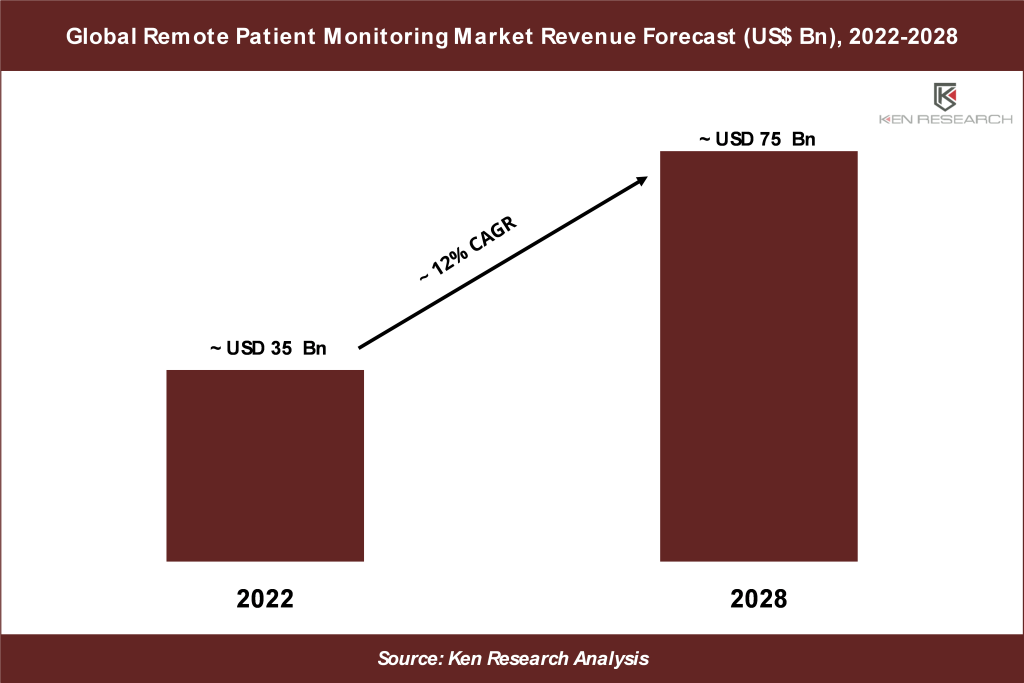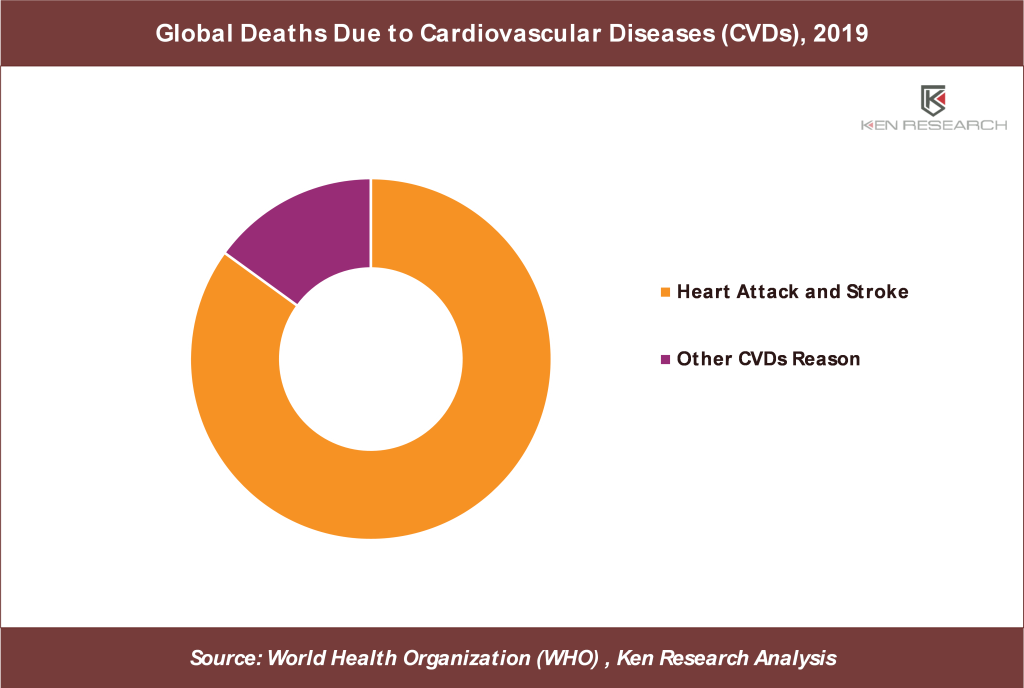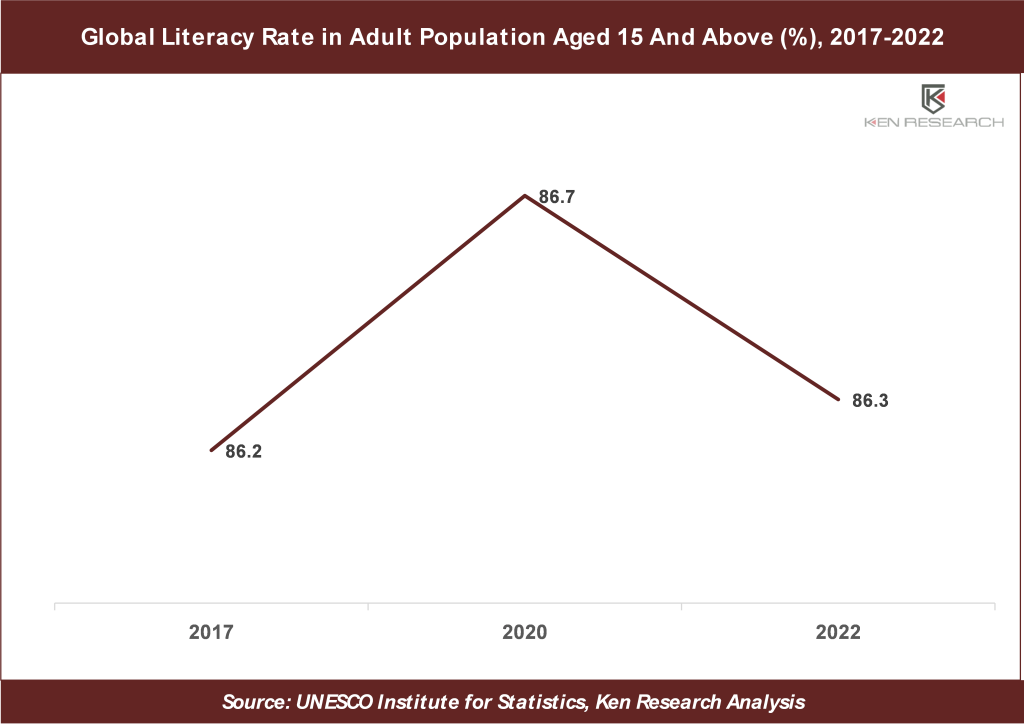3 Key Insights on Global Remote Patient Monitoring
The growth can be attributed to increased product adoption as a result of the growing demand for doctor-patient interaction to accelerate healing and recovery periods. Remote Patient Monitoring is forecasted at ~US$ 75 Bn by 2028 says Ken Research Study.
Remote patient monitoring is a simple and effective method for tracking physiological symptoms and includes a wide range of medical solutions that are convenient for patients and give doctors access to real-time information to determine the cause of sickness. Additionally, providers can access a specific patient's probable diagnosis and medical history by using Artificial Intelligence (AI) of remote patient monitoring technologies.
Ken Research shares 3 key insights on this high-opportunity market from its latest research study.
1. Growing Demand for Doctor-Patient Communication to Shorten Healing and Recovery Times Are Expected to Propel Market Growth.
The remote patient monitoring market is anticipated to expand rapidly between 2022 and 2028, owing to the growing need for short healing and recovery durations. The global remote patient monitoring market was valued at US$ 20 billion in 2017, it is estimated to be US$ 35 billion in 2022 and is expected to reach a market size of US$ 75 billion by 2028 growing with a CAGR of ~12%.
The technologies assist in fostering a deeper comprehension of illnesses and treatments, giving consumers greater control over their care regimens. Lower readmission rates in healthcare facilities, hospitals, and emergency rooms (ERs) are another advantage of remote patient monitoring systems. The advantages of RPM to reducing the strain on medical resources, monitoring advantages of telehealth and remote patient monitoring services, technological advancements in telecommunications, the rising geriatric population, and the growing need to increase healthcare access are the main factors influencing the market growth.
2. Governmental Programs to Promote Innovation and Growth Ageing Population Growth and Growing Demand for Expanded Access to Healthcare
The demand for healthcare and long-term care services will increase as the population expands, adding to the burden on public health systems and governments which will benefit the market for remote patient monitoring will benefit from this. By lowering the number of unnecessary visits, hospital hospitalizations, and readmissions, as well as the time and money spent traveling to see specialist doctors, remote patient monitoring can expand the accessibility to healthcare overall. The expansion of the RPM industry is anticipated to be fueled by rising support for government initiatives and innovation. The American Heart Association (AHA) additionally supports plans to increase access to technologies for Remote Patient Monitoring (RPM) in order to enhance health administration. It is anticipated that gadget manufacturers' efforts to create cutting-edge goods will accelerate growth even more. Since there are more people with heart disease, there has been a rise in the use of these monitors.
Request for Sample Report @ https://www.kenresearch.com/sample-report.php?Frmdetails=NTk2MDI0
According to World Health Organization reported in 2021, as per estimates, 17.9 million deaths worldwide in 2019 were attributable to CVDs, or 32% of all deaths. Heart attack and stroke deaths accounted for 85% of these fatalities.
3. Digital Literacy and Data Interoperability Are Some of the Major Barriers to Market Growth
Patients and doctors frequently struggle with unfamiliarity with new procedures and are reluctant to abandon their current (traditional) procedures. Due to their lack of experience with technology, older persons may also choose not to use telehealth and telemedicine services. Lack of qualified specialists, insufficient privacy and security of medical data, inconsistent device functionality, and lack of awareness of monitoring devices in rural or underdeveloped areas are some of the factors limiting the growth of the Global Remote Patient Monitoring Device Market.
According to the World Population Review and UNESCO Institute of Statistics stated that in 2022, all males and females who are at least 15 years old have a literacy rate of 86.3%. The literacy rate for men over the age of 15 is 90%, while it is just a little lower for women, at 82.7%. However, there are significant variations between nations.
For more information on the research report, refer to the below link:
Follow Us
LinkedIn | Instagram | Facebook | Twitter
Contact Us: –
Ken Research
Ankur Gupta, Head Marketing & Communications
+91-9015378249




No comments:
Post a Comment